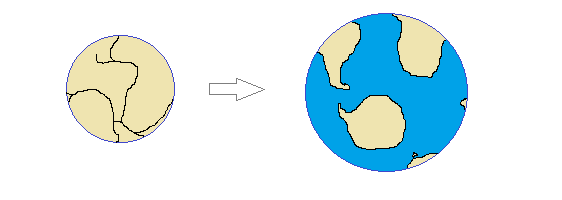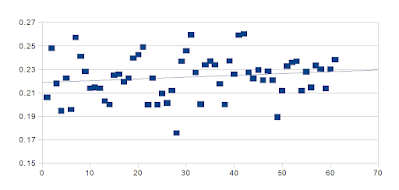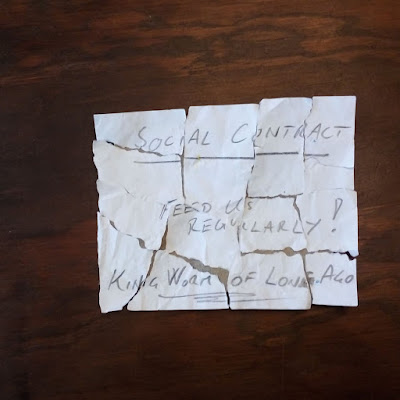There will be a BRIC meeting in South Africa this August, and there's a rumour that a new world currency will be announced at this event. This currency will, as rumours have it, be linked to gold.
But how exactly will such a currency work? The BRIC isn't a politically unified organization. The fact that Putin cannot attend it because South Africa will be compelled to arrest him proves this fact. The only thing BRIC members has in common is a desire to move away from the dollar, and that on its own isn't a good basis for a new currency. However, there's a way to introduce a gold standard without having to add any new currency. Every country can keep its currency as it is. There's no need to linking it to gold or scrapping it for some other currency linked to gold.
All that's required for a world wide trading system based on gold is for every country interested in such a system to open a gold exchange where physical gold can be traded without any limits. This can be illustrated with some examples.
Let's say we're operating a trading house out of Brazil. We're sending a ship load of sugar to India where we sell it for Indian Rupees. However, we don't need all the Rupees we receive. Our next shipment is to China with rice from India, and the price of the rice is such that we end up with a surplus of rupees. That's a problem we currently solve by keeping our reserves in dollars because they are accepted everywhere. But this problem can also be solved if we can buy gold at a local gold exchange.
If the local gold exchange is linked to a global network of gold exchanges, operating under identical rules, we can tell the exchange in India that we want our gold ready for delivery in China where we expect to buy goods for more than we receive from our sale of rice. Instead of transporting gold across the ocean, we can rely on book keeping similar to the system Richard Cantillon worked with back in the 17th century. Only difference would be that Cantillon operated with paper records, while a modern system would use electronic ledgers.
When we arrive in China, we have rice and gold with which to buy goods. We don't come with Rupees nor do we come with dollars. The trade is gold based, yet the Rupee was never linked directly to gold. It was indirectly linked to gold through a network of exchanges.
This system will also solve the problems of long term contracts between trading houses from different nations. If we operate out of Brazil, we're unlikely to want to write five year contracts in Rupees, and our partners in India won't be excited about a contract written in Brazilian Reals. That's why such contracts are currently based on the US dollar. But writing contracts against gold will work equally well, provided every BRIC member has a free and open gold exchange.
The result of such a system will be that international trade becomes gold based, with local currencies only used internal to each country. But the gold standard will gradually find its way into local trade as well. Importers who buy merchandise in gold will want to be paid locally in gold as well. Everyone will eventually migrate to the new standard unless states prohibit this by law.
 |
| Sovereign |
By Heritage Auctions for image, Mary Gillick for coin - Newman Numismatic Portal, Public Domain, Link





